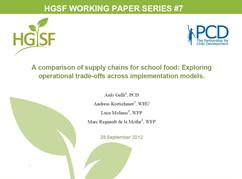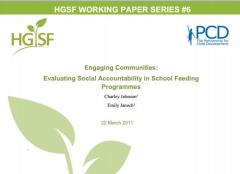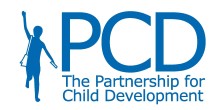Lundi, 07 Avril 2014 15:03
In Nigeria, Osun State is the only state that has a school feeding programme (SFP) due to the strong insistence of local communities and support from current state government leaders. However, the programme’s major challenges include securing ongoing funding and increasing local smallholder farmer participation. It is believed that improvements in these two areas will enable the Osun programme to be sustainable in the future. The eventual hope is that the Nigerian federal government will roll out legislation for a national school feeding program and Osun State’s successful model will be the standard.




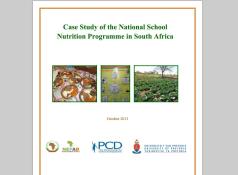
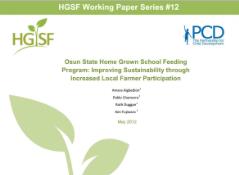 HGSF Working Paper Series #12 Osun State Home Grown School Feeding Program: Improving Sustainability through Increased Local Farmer Participation
HGSF Working Paper Series #12 Osun State Home Grown School Feeding Program: Improving Sustainability through Increased Local Farmer Participation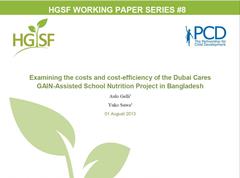 School feeding programmes exhibit different, context-specific models or configurations. A key activity in the Partnership for Child Development research programme involves understanding the trade-offs in terms of cost-efficiency of different school feeding supply chain models. Cost estimates of school feeding programmes generally do no capture contributions made by the community at the school level. In fact only one study in the literature includes full costing across the supply chain.
School feeding programmes exhibit different, context-specific models or configurations. A key activity in the Partnership for Child Development research programme involves understanding the trade-offs in terms of cost-efficiency of different school feeding supply chain models. Cost estimates of school feeding programmes generally do no capture contributions made by the community at the school level. In fact only one study in the literature includes full costing across the supply chain. 